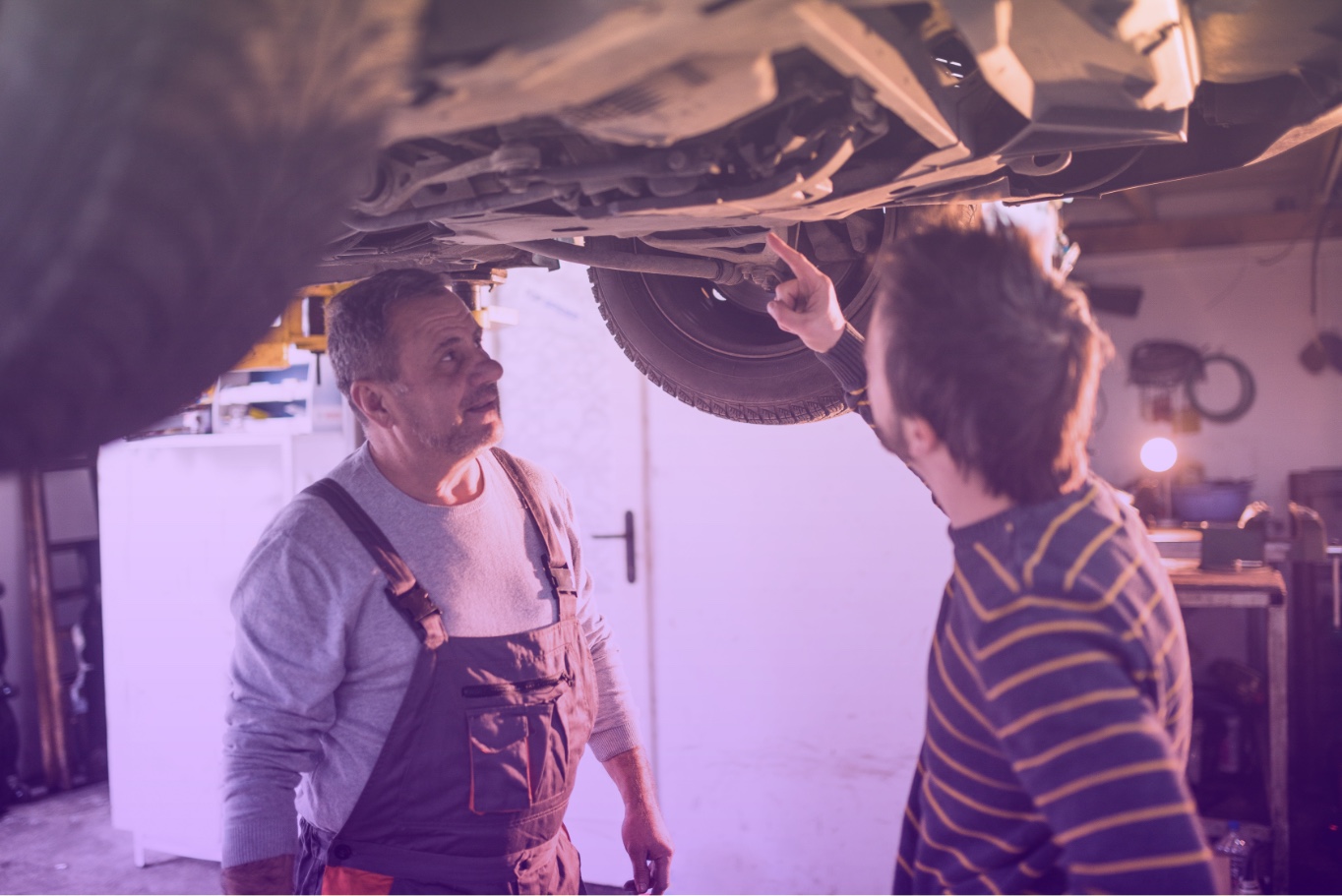 Back
Back
Every Cost Of Owning A Car You Need To Consider
On Wednesday, May 29, 2019 -
There’s a lot to think about when it comes to the cost of owning a car. The price of the car itself is just one aspect of the overall cost you need to consider, and the last thing you want is to take a look at the price of the car, either as a lump sum or monthly instalments and think “Yep, I can cover that, no problem”, only to find further down the line that you can’t afford the insurance, or the fuel costs a fortune. Nobody wants the shiny new car they were so excited about to become a very expensive garden ornament.
There are a number of costs of owning a car that you need to think about as you tot up your budget. Let’s get stuck in.
Buying a car
First and foremost, you’ll need to consider the cost to get your new vehicle off the dealer’s forecourt and onto your driveway. What you pay depends largely on how you’re funding your purchase. If you plan to buy a car outright using cash from your savings, you’ll likely have a finite pot of money to spend, and once you’ve bought the car, will only need to think about the ongoing running costs.
Using a personal loan to buy a car is another option to buy your car outright, but alongside the running costs of the car, you’ll need to budget for the monthly payments you’ll need to make to repay your loan.
If you’re thinking of buying a car on finance with an agreement like hire purchase or PCP, then there are a few costs to consider. First, you’ll need to think about the savings you have available to pay the deposit. Then, budget for the cost of your monthly instalments for the duration of your finance agreement. Finally, but by no means least importantly, you’ll need to make sure you can afford the ongoing running costs of the car.
A deposit on a car is typically 10% of its value, so you’ll need to have this in cash to put down up front. Then, your monthly instalments will be determined by the type of finance you’re taking out, whether that’s Hire Purchase, PCP or PCH. Choosing to pay a higher amount each month could work out cheaper for you in the long run, as you’ll pay back what you borrow quicker, and will pay less in interest.
If you choose PCP car finance, you’ll also need to pay a lump sum at the end of the agreement if you want to keep the car, so it’s important you bear this in mind and allow room in your budget to save up for it if this is something you want to do.
Now, let’s move onto the running costs you’ll be up against.
The legal cost of owning a car
Insurance
Insurance is an unavoidable cost you’ll face if you want to own a car. There’s no getting out of it: it’s the law, and the punishment if you’re caught driving without insurance is severe. On average, insuring your car costs around £400 a year, but it could be cheaper than this, or it could cost significantly more depending on your circumstances.
Insurance costs – known as premiums – are priced based on the risk you and your car present to the insurer. Some of the things they’ll consider when deciding how much your insurance should cost are:
- Your car – the make, model and specification of your car will all be taken into account. The more fancy mod cons you have, the more expensive repairs are likely to be. Plus, some luxury cars are extremely desirable, and so are an increased risk of theft
- How long you’ve held your license – experience counts for a lot in the driving world. As a general rule, the longer you’ve held your license, the more you’ve been trained to expect anything and everything on the roads, and the less risk you pose
- Your age – as well as how long you’ve held your license, insurers will consider your age when quoting you for insurance. And it’s not just being very young that can go against you, here. As you reach older ages, you might find that your premium starts to creep up, as the chance that you might make a mistake, or fail to take avoiding action quickly enough if you need to increases.
- Where you live – insurers know which areas have higher levels of car theft and break-ins, and will bear in mind the stats in your area when quoting your insurance premium
- Where the car will be kept during the day and at night – where you keep your car during the day and overnight goes a long way to determining how safe it will be. Different locations come with different risks, both of theft and damage. Insurers will weigh this up accordingly
- How you’ll be using your car – how much you’ll use your car, and for what purposes, say a lot to insurers about the type of driving you do and how much other traffic you’re likely to be around
- How careful a driver you are – this is expressed as no-claims bonus, the discount you’re awarded on your insurance policy that gets bigger the more years you go without needing to claim on your insurance due to an accident. Some insurers can also measure this by giving you the chance to have a box installed in your car that tracks your driving habits and as long as you drive safely, can bring your premium down in future years
- What type of cover you want – insurance isn’t a case of simply having it or not; there are different levels to consider, from third party, third party fire and theft, to fully comprehensive. There might also be extra, optional costs like breakdown cover to quote for
- If you’re prepared to have a voluntary excess on your policy – a voluntary excess means you agree that you will pay a certain amount towards car repairs if you need them, reducing the amount that your insurance needs to pay for you if you make a claim. This will usually bring the cost of your policy down a little, but remember that if you ever make a claim, you will need to pay the excess. If you already have a compulsory excess on your policy, this could mean you have to stump up a lot before your insurer will pay out
You’ll usually get to choose whether you pay for your insurance annually as a lump sum, or pay for it in monthly instalments. Some providers offer a discount if you choose to pay for the year up front.
Tax
Officially known as Vehicle Excise Duty (VED), car tax or road tax is another annual cost you need to pay by law if it applies to your vehicle. The exact amount you pay depends on your car’s CO2 emissions, with discounts and occasionally exemptions available for electric cars and hybrids, which have lower emissions. On average, though, you’ll need to set aside around £145 a year to cover it.
When you buy a car, even if it’s a second hand car that has already been taxed by the previous owner, you’ll still need to pay for tax yourself at the point you buy the car. This is because the law says tax cannot be transferred with a vehicle when it’s sold. You might be thinking that it never used to be this way, and that having a good amount of time before the tax needed renewing was an appealing thing for a car to come with. And you’d be right – that certainly used to be the case, but the law changed in 2014. Sorry about that.
MOTs
If your car is three or more years old, then it’s a legal requirement that it goes for MOT every year. The MOT is a set of tests that make sure your car is safe and roadworthy, and must be carried out by a professional mechanic.
Although the cost for the test itself is £54.85 for a car that can seat up to 8 passengers, you may be faced with a higher bill if your car fails any aspect of the test, and needs work doing to bring it up to the required standard.
For example, if an MOT found that your tyres have less than the legal minimum amount of tread depth left on them, then you’ll need to replace them in order for your car to pass the MOT. How much this costs depends a lot on your car and the type of tyres you want. It could be pretty affordable, or it might not be – the choice is yours!
Other essential costs of owning a car
Servicing
If an MOT makes sure your car meets basic roadworthiness requirements, then servicing keeps your car in otherwise good nick. While servicing isn’t a legal requirement of owning a car, if you’ve bought your car on a lease or finance agreement, then having your car serviced once a year or every so many miles might be a condition of your agreement.
Servicing costs can be managed more easily if you take out a service warranty or maintenance package, where you pay a fixed fee each month that covers your annual appointments and potential work that needs doing. These agreements may not cover absolutely everything that you could be charged for at a service, though, so make sure you’re clear about what’s included and what isn’t before you commit.
Between an MOT and routine servicing, the majority of maintenance issues you might have with your car will be picked up and addressed.
Fuel
If you want to drive your car anywhere, then it’s going to need fuel in it. And, regardless of whether your car is a petrol or diesel, this is going to cost you a pretty penny. Even if you go for an electric car, you’ll pay for the power through your electricity bill, or when you recharge your car at a charging station.
The price of fuel goes up and down by small amounts almost every day, as well as varying depending on which petrol station you use, making it hard to know exactly how much money you should set aside for fuel over a year. A £50 tank of fuel at one station on one day could be a £65 tank on another day at another petrol station! The average person spends £67 a month on fuel for their car, so this is a useful benchmark to keep in mind as you budget.
You can keep your fuel costs down by becoming a more efficient driver, accelerating gently, driving in the highest gear you can for the speed you’re travelling, and trying not to keep anything heavy in the boot of your car. It’s also worth finding the cheapest petrol station in your area – which is likely to be at a supermarket – and crunching the numbers to work out if the cost of travelling there for your fuel outweighs the saving you’ll make.
Don’t forget depreciation
While depreciation isn’t a cost you’ll have to pay as such, you’ll certainly feel it when you come to sell your car.
The longer you own a car, and the more miles you put on the clock, the more the value of the car will decrease. Generally, cars lose a large portion of their value quickly, and then the depreciation slows down as time goes on. If depreciation was a rollercoaster you were riding, you’d go down a steep drop first, and then level off gradually. If you hang onto your car for long enough that it becomes a classic, the value might even start to increase again!
You’ll likely have heard people say that brand new cars lose 20% of their value as soon as you drive them off the forecourt. This is because brand new cars incur VAT – the 20% tax we pay on most things we buy – but second-hand cars don’t. So, if you wanted to sell a brand new car a couple of months after buying it, you wouldn’t be able to charge VAT and so wouldn’t be able to get back as much as you paid for it. If you’re buying a second-hand car, you may find that its value decreases at a slower rate than if you’d bought a brand new vehicle.
There’s not a lot you can do to prevent depreciation. Some cars hold their value better than others, so this might be something you bear in mind as you’re choosing a car to buy. Making sure you take good care of your car can also help it to keep its value. Mostly, depreciation is something to be aware of to make sure you have a realistic idea of what your car is worth if you come to sell it further down the line.
So, how much is the cost of owning a car?
Obviously, there are a lot of variables at play that make the cost of owning one car very different to owning another. In 2018, Kwik-Fit estimated that the average motorist spends £162 per month on running their car, plus another £226 a month if they bought it on finance. This means that on average, running costs like insurance, tax, MOTs and fuel come to just under £2000 a year. With car finance in the mix as well, you’d need to set aside a whopping £4,500 to cover both running your car and repaying your finance.
We’ll save you a seat on the bus!










